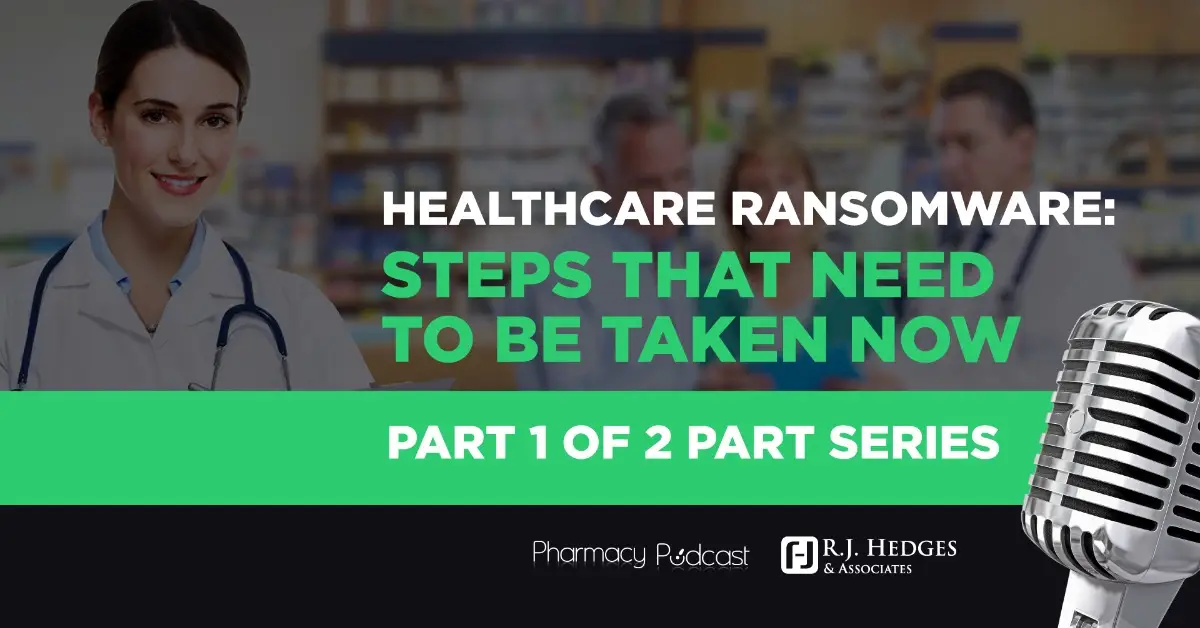Dreaded Reality of Ransomware in Pharmacies Part 1 [Podcast]

Ransomware is a type of malicious software that restricts access to a computer system or its data and demands ransom money to unlock the system. It refers to an offshoot of malware that encrypts computer data and then extorts either a sum of money or something valuable, such as the release of sensitive data, from the victim.
When ransomware locks down your computer it will display a message explaining that you need pay up or all of your files will be deleted.
To prevent Ransomware, there are numerous precautions that people can take including:
- Keep your antivirus software up-to-date with real-time protection
- Back up all of your important data, like photos and videos on an external hard drive
- Updating software on their devices regularly
- Using strong passwords
- Install firewall software
- Don’t open any attachments or links from unknown senders
Cyberattacks on healthcare organizations have increased during seasonal health risks, threatening patient care and private data. More than a third of healthcare organizations were hit by ransomware attacks in 2020 and out of those 65% said the cybercriminals were successful. Roughly a third of organizations that had data stolen paid the ransom to recover their information, but only 69% of the encrypted data was restored after the ransom was paid.
A new report by Sophos, which was commissioned by the independent research company Vanson Bourne, surveyed 5,400 IT decision makers in various industries around the world including 300 small- and mid-sized businesses. The data showed that it’s costing companies, on average, $1.3 million to get back up and running after a ransomware attack.
Today Jeff Hedges, the Pharmacy Compliance Guide and owner of R.J. Hedges & Associates and Nick Dorazio, President of LVTech and technology expert are going to talk about what ransomware is and how it happens, put some context around the shear cost of this type of event happening to your business, we’ll go over some terminology and solutions for your business and even how you can prevent this from happening to your system.


